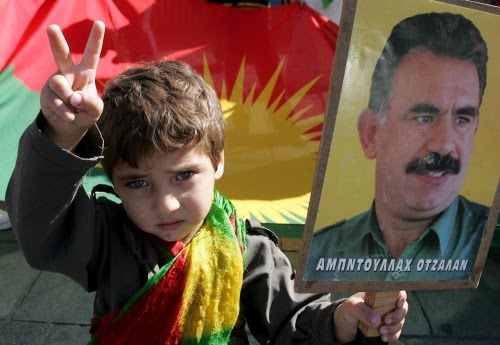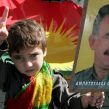
Turkish-PKK Peace Settlement Draws Nearer
Publication: Eurasia Daily Monitor Volume: 6 Issue: 192
By:

Since the Justice and Development Party (AKP) government first revealed its Kurdish initiative in cooperation with the other state institutions, including the military and the National Intelligence Service (MIT), many doubted whether it would prove successful. While the opposition parties were arguing against the Kurdish initiative, the Turkish President Abdullah Gul and the imprisoned leader of the Kurdistan Workers’ Party (PKK) Abdullah Ocalan have adopted a positive stance toward the process. For the past two months the Kurdish initiative has dominated the domestic political agenda (EDM, August 6, 14, 21, September 10, 24). However, until October 16 the political debates have not produced any progress toward persuading PKK militants in the mountains to abandon their campaign of violence.
While the debate appeared to be deadlocked, Abdullah Ocalan ordered (through his lawyers) the PKK to hand over a group of militants as a “peace group” as proof of their commitment to the initiative (Radikal, October 17). In response, the PKK sent 34 militants from Northern Iraq to the Turkish authorities at the Habur border crossing, which was considered a groundbreaking move that may lead to the disarmament of the PKK, strengthening the hand of the government in its recently launched democratization package to end the country’s long-standing Kurdish problem (Today’s Zaman, October 20).
The group carried a letter for Turkish officials, saying its members hoped to make a “modest” contribution to peace with their journey, and listed requests, including putting an end to military operations against the rebels; allowing Kurdish language education; ending what they called “pressure and oppression” by the security forces in mainly Kurdish villages and cities; and preparing a constitution that ensures their democratic rights in Turkey (Firat News Agency, October 19). Most of the demands that were highlighted in the letter were either already incorporated or addressed within the government’s Kurdish initiative.
One critical issue was whether the members of the “peace group” would be arrested and serve lengthy prison sentences, or if the state would offer an amnesty. In 1999, when Ocalan was arrested, he had also asked a group of PKK militants to surrender. However, at the time the PKK members were imprisoned, and remain incarcerated. Unlike the previous attempt, the Turkish state has developed a more tolerant attitude toward the group; 29 militants were released after questioning, though five were taken to court because of previously opened investigations (Vatan, October 20).
The Turkish press reported that the Minister of Interior Besir Atalay –responsible for coordinating the Kurdish initiative– closely monitored the surrender, and even sent high-ranking officials form Ankara, including the undersecretary of the Minister of Interior Osman Gunes, to the Habur gate to take charge of the process (Taraf, October 20). Atalay stated that, “with an effective plan we are moving toward the culmination of the process” (Vatan, October 20).
The Kurdish nationalist Democratic Society Party (DTP) has also played a positive role in this development. On the eve of the surrender, local branches of the DTP organized a sizeable welcoming group to show their support for the process and the decision of the PKK leadership, while its leaders negotiated with the interior minister to find a compromise that would suit both sides (Taraf, October 20).
Turkish public opinion has thus far proven to be muted, which might indicate a popular desire to end the conflict. Except for marginal nationalist media outlets, which labeled the process as a betrayal, the mainstream media has welcomed the latest development (Hurriyet, Sabah, Milliyet, Yeni Cag, Zaman, October 20).
When it comes to the question of whether the process will succeed, it is essential to examine the motivation of the key political actors, particularly Ocalan and the government. Since Erdogan revealed that his government is preparing the Kurdish initiative, he has committed himself to pursuing the process. Its failure risks the loss of Kurdish support, and potentially might undermine his domestic power base. By contrast, Ocalan and the PKK leadership are driven by more complex considerations. On the one hand, the majority of Kurdish people wish to avoid continued conflict, while the international community and Kurdish leaders in northern Iraq do not want PKK camps on their territories.
Moreover, Ocalan and the founding leaders of the PKK and the first generation of its militants are aware that time is running out and many realize that their fighting years are drawing to a close. In addition, at least half of the PKK militants are in their twenties, which means that the new generation was approximately 10 to 15 years of age when Ocalan was arrested in 1999. Thus, it would be difficult in the longer term for Ocalan to maintain his influence over the PKK. Unless the PKK abandons its campaign, within a decade its older generation of fighters will be around 65 to 70 years old. The new generation of PKK militants may change the direction of the organization, a prospect that Ocalan might wish to avoid. Thus, Ocalan believes that the next few years represent both his and first-generation PKK militants’ last opportunity to end the war, allowing him to emerge as the “peacemaker” and as a Kurdish national hero (Today’s Zaman, October 20).




